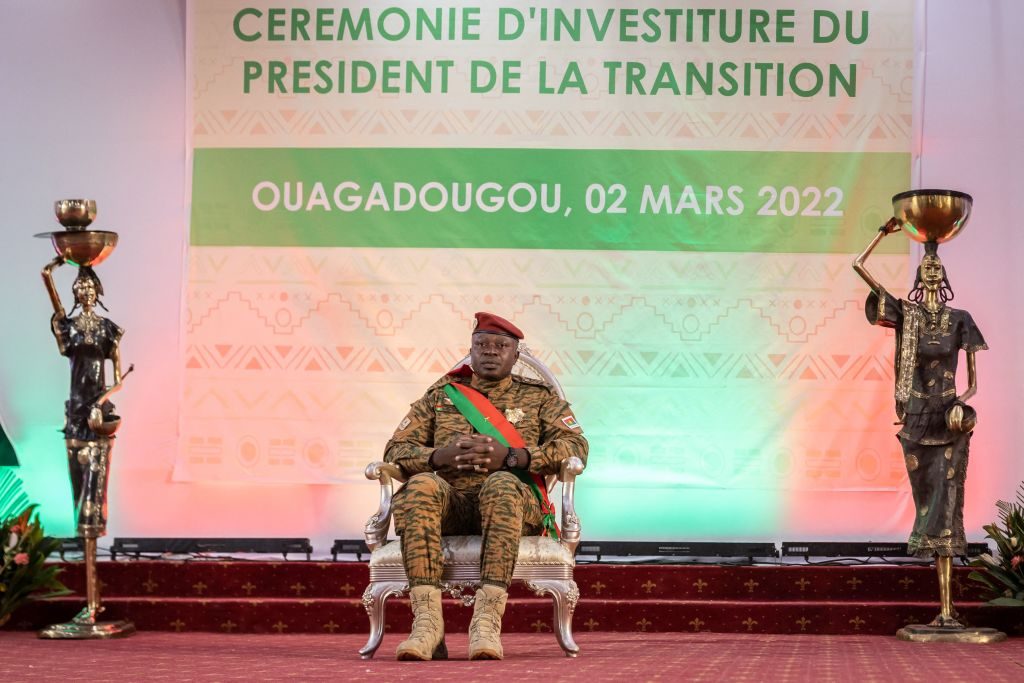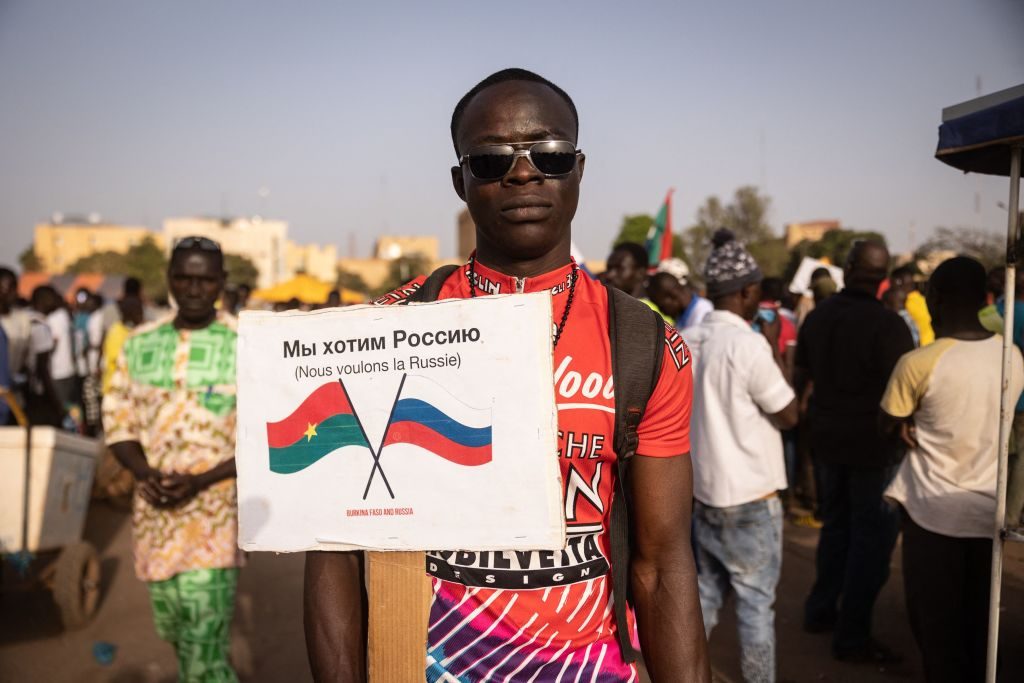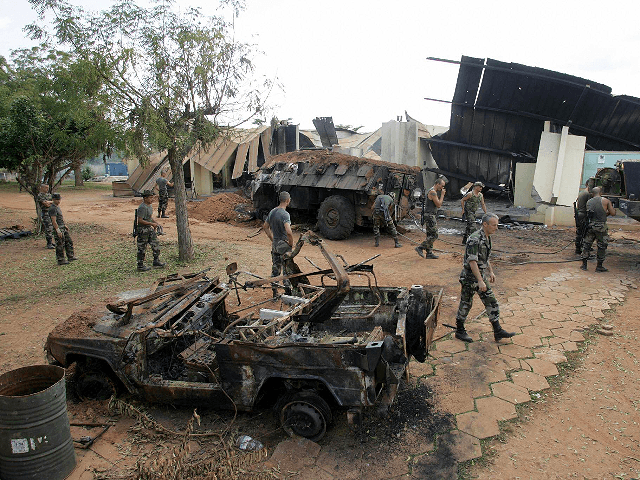Reporters Without Borders (known by its French initials, RSF) published its annual Press Freedom Index on Tuesday, ranking America at a paltry 42nd place – behind countries like Burkina Faso and East Timor – because of the allegedly negative effect of President Donald Trump’s time in office.
RSF cited “information chaos,” which it defined as “a globalised and unregulated online information space that encourages fake news and propaganda,” as the paramount threat to journalists, and completely overhauled its metrics this year to measure press freedom on the basis of, among other things, “political” and “sociocultural” contexts. It cited a “record” number of 28 countries classified as experiencing a “very bad” press freedom environment this year, including China, “the world’s largest prison for journalists.”
China received the 175th position on the list, above only five other countries. North Korea topped the list of least free countries for journalists, taking the last (180th) spot.
The United States of America rose two positions from 44th in the 2021 Index to 42nd this year. While President Joe Biden has been in office for over a year, the profile explaining the ranking dwells heavily on his predecessor, Donald Trump, who currently holds no public office.
“In 2020, fearing a brutal wave of news agency executive dismissals from the Trump administration, RSF called on the US Agency for Global Media and new media executives to respect the media’s independence,” the organization proclaimed in its 2022 profile of America. “After four years of President Trump constantly denigrating the press, President Biden signaled his administration’s desire to see the US reclaim its global status as a model from freedom of expression, thus reinstating regular White House and federal agency press briefings.”

Lieutenant-Colonel Paul-Henri Sandaogo Damiba, President of Burkina Faso, is seen at his inauguration ceremony as President of Transition, in Ouagadougou, on March 2, 2022. (OLYMPIA DE MAISMONT/AFP via Getty Images)
“Despite these efforts, many of the underlying, chronic issues impacting journalists remain unaddressed by the authorities,” the profile continued, “including the disappearance of local news, the polarisation of the media or the weakening of journalism and democracy caused by digital platforms and social networks.”
RSF’s timeframe for the index spans from January 2021 to January 2022, so potentially contains some days during which Trump remained president. The organization noted that it extended its profiles to include January to March 2022 “for countries where the situation had changed dramatically (Russia, Ukraine and Mali).”
RSF did not afford such an update to the United States despite the Biden administration’s announcement last week that it would create a “Disinformation Governance Board” to control content shared online and in the press, with a mandate enforced through the Department of Homeland Security. It instead highlighted the alleged “disinformation” itself as a threat.
“According to recent studies, there are unprecedented levels of distrust in the American media. The disinformation affecting American society has created an atmosphere where citizens no longer know who to trust,” RSF claimed. “Online harassment, particularly towards women and minorities, is also a serious issue for journalists and can impact their quality of life and safety.”
RSF also added a graph of the number of imprisoned and killed journalists in America this year.
Among the countries ranking higher than American on the Press Freedom Index are Burkina Faso, an African nation that experienced a coup d’etat this year; New Zealand, whose leftist Prime Minister Jacinda Ardern won re-election in an unfree election hampered by severe coronavirus-related police restrictions in 2020; and Canada, where government subsidizing severely compromises news reporting and conservative journalists have complained of widespread discrimination under the left-wing Liberal Party.
Burkina Faso, the country ranking immediately above America at number 41, saw its government overthrown in January, which RSF conceded “poses grave risks to journalists’ security and access to information.”
“In 2019, the erosion of public security led to a change in the criminal code, which criminalises the dissemination of information on military operations in order to ‘not undermine troops’ morale,'” RSF observed. “The safety of journalists has suffered major setbacks in recent years. In April 2021, two Spanish journalists, David Beriain and Roberto Fraile, were killed while reporting in eastern Burkina Faso.”
Ivory Coast, which rose from 66th place to number 37 – five spots above America – also documented physical attacks on journalists.
“In 2021, conditions improved for journalists as there were no court convictions. However, they continue to face security problems while they’re on the job,” RSF observed. “between May and July 2021, at least five journalists suffered physical attacks by unknown assailants, political party activists or law enforcement. Investigative journalists are targets of corruption and intimidation, and their newsrooms are also targeted for attacks.”

A demonstrator holds a pro russian banner reading “We stand for Russia” to show support to the military in Ouagadougou, on February 19, 2022. (OLYMPIA DE MAISMONT/AFP via Getty Images)
New Zealand, just shy of the top ten “freest” countries at number 11, has no constitutional guarantee of freedom of the press: “In the absence of a written constitution and specific laws on the subject, freedom of the press is not legally guaranteed,” RSF conceded. The organization called the country a “model for public interest journalism.”
RSF did not mention a particularly embarrassing incident in February where a pregnant New Zealand journalist was forced to rely on the Taliban terrorist organization for protection after coronavirus restrictions stranded her in Afghanistan.
Canada, ranked number 19, received similar praise from RSF.
“Media outlets in Canada are generally free of pressure from politicians, political parties, and political movements. The Canadian Broadcasting Corporation is owned by the government, but operates independently,” RSF observed, citing only this year’s Freedom Convoy protest as an alleged threat to journalism – not government attempts to censor coverage of the protest, including threats to arrest journalists.
As Ezra Levant of Canada’s Rebel News explained at the time, “more than 99% of journalists receive a payment from Justin Trudeau … There is an illusion of media competition in Canada, but it’s an oligopoly. Postmedia — the largest recipient of Trudeau’s media bail-out — owns every English-language daily newspaper in Canada, except two.”
Rebel News has accused at least one Canadian bank of discrimination against it for its conservative leanings, rejecting an application for a commercial mortgage in December.


COMMENTS
Please let us know if you're having issues with commenting.